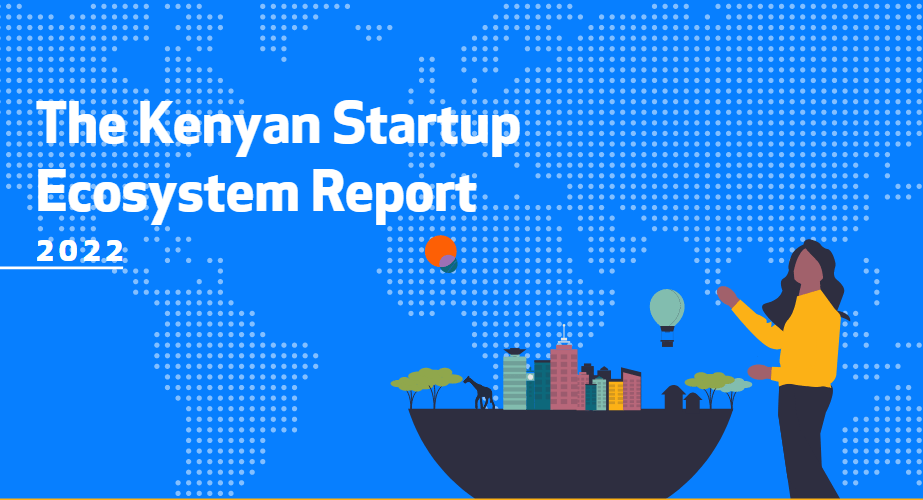- The Kenyan Startup ecosystem has employed 11,000 people according to the latest analysis by Disrupt Africa.
- The Kenyan Startup Ecosystem 2022 report indicates that at least 308 tech startups were in operation across Kenya as of November 2022.
- At least 242 Kenyan tech startups raised a combined US$1,281,918,200 between January 2015 and November 2022.
A new report by Disrupt Africa has revealed that jobs by Kenyan startups hit 11,000 in 2022.
The data dubbed ‘Kenyan Startup Ecosystem 2022’ indicates the jobs were created by 308 tech startups across Kenya as of November 2022.
According to the report, these startups are also supported by a strong investment ecosystem. At least 242 Kenyan tech startups raised a combined US$1,281,918,200 between January 2015 and November 2022, a figure bettered only by Nigeria.
By mid-November, 63 Kenyan startups had raised funding in 2022, with the country’s running total for the year standing at US$506,686,000. This is approaching double the US$291,983,000 raised by Kenyan startups in 2021, and represents a record annual total for the ecosystem.
Fintech is the leading sub-sector of the Kenyan startup space in terms of levels of activity, with 93 of the startups tracked here (30.2%) being fintech ventures, almost three times more than its nearest challengers.
Other sectors include; agri-tech and e-health, which account for 10.1 per cent of Kenyan startups each, with e-commerce and retail-tech, recruitment and HR, and ed-tech coming in third, fourth and fifth respectively.
“Kenya has an extremely varied range of activity across its startup ecosystem, with ventures active across areas as varied as mobility, logistics, agri-tech, marketing, prop-tech, legal-tech, waste management, and Energy,” the report explained.
Women lagging men founders
The publication finds that almost 50 per cent of Kenyan tech startups have undergone some form of acceleration or incubation, though diversity is an issue as less than 20 per cent have a female co-founder.
Interestingly, only 55 (17.9 per cent) of Kenyan tech startups have at least one woman within their founding team. Though this might be low, it fares better than all of the other “big four” ecosystems – Egypt at 12.5%, Nigeria (15.6%), and South Africa (14.3%).
“Though the newer generation of startups are more likely to be female-founded, and a handful of venture capital firms are especially focused on backing female entrepreneurs, with over 80 per cent of ventures solely male-founded, there is clearly work to be done to ensure more women become leaders within the country’s startup landscape,” the report notes.
“Amidst recent news of layoffs, shutdowns and pivots, analysis by Disrupt Africa shows that even with the global slowdown, startups in Kenya have as at the end of November 2022, already raised almost double the total amount raised in 2021. And the innovation continues, with new startups focused on emerging themes, like climate tech, embedded finance and sustainability, showing Africa and the rest of the world why Kenya continues to attract international investors,” explained Kofoworola Agbaje, Senior Investment Associate, Quona Capital.
Agbaje added that despite Kenya’s wins in tech, Safaricom remains the only company that is part of the recent innovation wave that is publicly listed on the Nairobi Securities Exchange.
“As in most African countries, home grown startups aspire to list on international stock exchanges, which further perpetuates the low participation of retail investors. Kenya’s government has taken notice of this, with President William Ruto recently announcing a drive to increase participation of retail investors in the capital markets. While it is currently unclear what programmes, regulations and incentives would come out of this, the venture ecosys- tem has a huge role to play,” she added.
Kenyan startups, however, are only the fourth most successful when it comes to successful exits, lagging behind South Africa, Egypt and Nigeria.
“We need to go further with improved and transparent corporate governance to give retail investors greater comfort to invest in Africa. Only by participating in and being part of the overhaul will we be able to grow our capital markets to make listing on local exchanges the ultimate achievement. At Quona, we remain committed to the Kenyan fintech ecosystem. The special breed of innovators, enablers and supporters that contribute to the ecosystem continues to rise to the challenges,” she concluded.
The Kenyan Startup Ecosystem Report 2022 is the fourth geographically-focused publication released by the company, made possible by support from Quona Capital, NEAR Kenya, MarketForce, Newtown Partners, Enza Capital, Cellulant, and AAIC Investment.
Since launching its research arm in 2016, Disrupt Africa has built up a significant portfolio of publications, most notably the African Tech Startups Funding Report and Finnovating for Africa, previously available for sale but now made available free for all via open-sourcing initiatives with various partners across the continent’s tech ecosystem.
